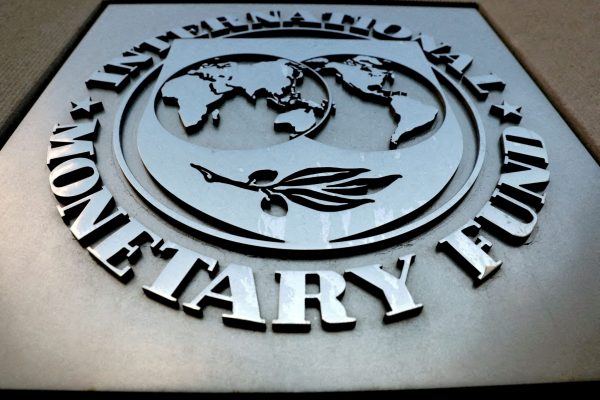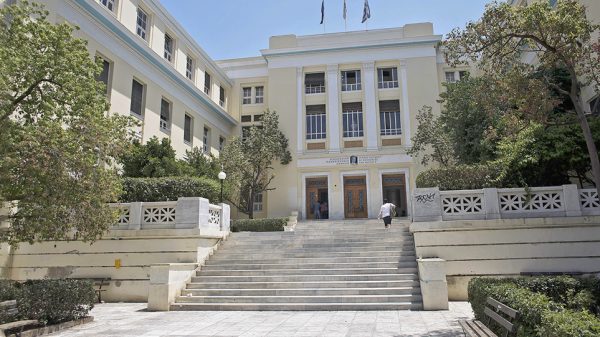
The Greek economy is in an inflationary circle that is tightening more and more.
Rise in commodity prices continues at an increasing rate, creating a major blow to citizens’ pockets.
Inflation rose to 6.2% in January, while a new jump is estimated in February, perhaps in the region of 7%.
Read also: Yale prof. : Commitment to reforms, inflation is No. 1 risk
Foods such as meat, fresh fish, fresh fruit, vegetables, bread and staple foods such as cereals, olive oil and other edible vegetable oils increased in January. These increases are expected to continue in February.
For another month the frantic course of the index continues due to the energy crisis that is aggravated daily by the war in Ukraine.
At the same time, inflation in the eurozone in February, according to Eurostat data, rose to 5.8% from 5.1% last month and more than 5.6% of the average estimate of economists surveyed by Bloomberg . These latest figures reinforce concerns that Russia’s invasion of Ukraine will intensify inflationary pressures.
Energy remained the main lever, with Deutsche Bank analysis warning that rising oil and gas prices were pushing the euro lower and causing “a vicious cycle of inflation”.
The next months are difficult
Inflationary pressures on energy, travel, heating costs that push family budgets show that they will remain in the coming months
After all, in the data recently published by the European Commission, the inflation forecast in Greece reaches 3.1% (0.8% of the budget forecast) for 2022, while the previous one was only 1%.
Read also: Consumers in despair: Galloping inflation is emptying the “family basket”
It is worth noting that this assessment is fully in line with the latest BoG, which rang the alarm bell.
Latest News

Number of Turkish Visitors to Greek Islands up 10-Fold After 7-Day Express Visa
More than 20,000 Turkish tourists flocked to the eastern Aegean isles during a nine-day religious period in the neighboring country

Greece to Protect 198 ‘Untouchable Beaches’
These beaches, numbering 198 across the country, fall within the Natura 2000 network and will be off-limits for concession and, by extension, for the placement of umbrellas, sunbeds, etc.

BoG: Feb. Current Account Deficit up by 1.8bln
At current prices, exports dropped by 10.3% (‑10.7% at constant prices) and imports grew by 5.7% (9.4% at constant prices).

Greece Becoming a ‘Refuge’ for German Pensioners
The government's policies to attract foreign property buyers to boot the economy is working, reports German newspaper Handelsblatt

Iran Activates Air Defense System- Reports of Attack by Israel
An Iranian official said explosions reported by Iran's media were the result of the activation of the country's air defense system, yet media reports attribute them to a drone attack by Israel

Poll: Greeks, EU Citizens Eager to Vote in European Elections
EU citizens are eager to vote in the upcoming elections for the European Parliament in June, with eight in 10 saying the current geopolitical situation makes voting imperative

Mitsotakis-Erdogan Meeting in Ankara Fixed for May 13
The Greek PM himself made the announcement from Brussels on Thursday, while he also responded to a question on Athens' intent to create a marine park in the central Aegean, an environmental initiative

Greece Aims to Boost Energy Capacity, Economy with Offshore Wind Farms
Greece’s Energy Ministry is pushing legislation to accelerate the construction of the first floating wind farms in Greek seas

Reuters: Greek Economy Surges After Decade of Pain
Nevertheless, the article also highlights some of the challenges facing the country, with a falling birthrate and labor shortages posing a threat to the long-term outlook

IMF: Greek Growth in 2024 at 2%; Debt to Ease to 158.8% of GDP This Year
Projected consumer prices are forecast to rise by 2.7%



![Φυσικό αέριο: Γιατί είναι δύσκολη η απεξάρτηση από τη Ρωσία – Τα εμπόδια [Χάρτης]](https://www.ot.gr/wp-content/uploads/2022/07/gas-1-1-90x90.jpg)
































![Φυσικό αέριο: Γιατί είναι δύσκολη η απεξάρτηση από τη Ρωσία – Τα εμπόδια [Χάρτης]](https://www.ot.gr/wp-content/uploads/2022/07/gas-1-1-600x389.jpg)







 Αριθμός Πιστοποίησης Μ.Η.Τ.232433
Αριθμός Πιστοποίησης Μ.Η.Τ.232433